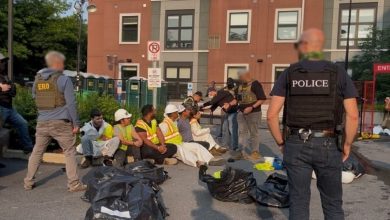Harvard Publisher Cancels Entire Palestine-Focused Academic Journal Issue
Scholars Denounce Unprecedented Move as Academic Censorship Amid Political Pressure

In a highly controversial move, Harvard University’s publishing arm abruptly canceled an entire special issue of a peer-reviewed academic journal on Palestine—before it could even be published. The issue, titled “Education and Palestine,” was scheduled for release in the summer of 2025, and had already entered its final editorial stages. The cancellation has sparked widespread criticism from scholars and academics, who accuse Harvard of suppressing academic freedom and applying what they call the “Palestine exception.”
The decision came nearly a year after the idea for the issue was proposed—six months into Israel’s 2024 war on Gaza, during which all 12 universities in the Gaza Strip were either partially or completely destroyed and the education system suffered a total collapse. In response, Harvard Educational Review issued a call for papers to explore Palestinian education and how Palestine is taught and discussed in American classrooms.
The editorial board described the project as crucial for putting Gaza’s educational devastation into historical and political context, including the ongoing occupation and systemic violence. By mid-2025, contracts with authors had been signed, and articles were in final draft. Topics ranged from the destruction of Gaza’s schools to the challenges of teaching about Palestine and Israel in the U.S.
However, on June 9, 2025, Harvard Publishing Group—which oversees the journal—unexpectedly canceled the entire issue. In an email to contributors, the publisher cited “a number of complex issues,” without further explanation, leaving writers and editors stunned.

Censorship or Legal Risk Management?
While the publisher avoided citing politics directly, internal emails and interviews with contributors reviewed by reporters suggest otherwise. According to several scholars involved, the cancellation followed months of mounting pressure related to concerns over accusations of antisemitism, the legal risk of politically sensitive content, and institutional fears intensified during Donald Trump’s administration.
The issue’s cancellation followed an escalating pattern of backlash toward pro-Palestinian speech on U.S. campuses. During the Trump era, universities were accused of tolerating antisemitism, leading many to clamp down on protests and scrutinize Palestinian-related programs.
The Harvard administration had already faced legal challenges, including a federal lawsuit from Jewish students in January 2025, prompting the university to adopt a controversial definition of antisemitism that critics argue conflates criticism of Israel with hate speech.

Scholars React with Outrage
Editors and authors say the justification given—that the journal lacked internal coordination and legal review—was not only inaccurate but also unprecedented. Palestinian-American anthropologist Dr. Thérèse Abou-Haj, a contributor from Barnard College, called the cancellation “a betrayal of academic mission.”
Co-author Chandni Desai from the University of Toronto condemned it as “a grave violation of academic freedom,” adding that her article, co-written with the dean of Al-Azhar University in Gaza, documented how education persisted amid bombardment—even while colleagues were being killed.
Desai emphasized: “This wasn’t abstract scholarship—it was survival. Universities were being destroyed while we were writing.”
Pattern of Suppression
This is not the first time Harvard has been accused of censoring pro-Palestine voices. Palestinian Harvard Law PhD student Rabeea Eghbariah, who was asked to write the journal’s conclusion, had previously seen his article banned by Harvard Law Review in 2023. When he published it in Columbia Law Review, the entire website was temporarily shut down. His request to include a clause protecting his academic freedom in the Education Review contract was denied.
The editorial board issued a statement denouncing the cancellation as contrary to the values of Harvard Educational Review, which has published for over 100 years. They revealed that a legal review was suddenly demanded months after final drafts were approved—something typically reserved for early editorial stages, and only for defamation concerns.
Political Pressures vs. Academic Freedom
This incident highlights growing institutional censorship under political pressure, particularly regarding scholarship on Palestine. Contributors argue it sends a chilling message: that even signed contracts and peer-reviewed articles can be scrapped for political expediency.
Desai summarized the gravity of the decision: “You can’t ask people to do this work under siege, then cancel their words. This is not academic discourse—it’s censorship dressed in policy.”
As debates over Palestine intensify across U.S. campuses, this episode reflects the sharp tension between institutional risk management and the core academic values of freedom, inquiry, and justice.



